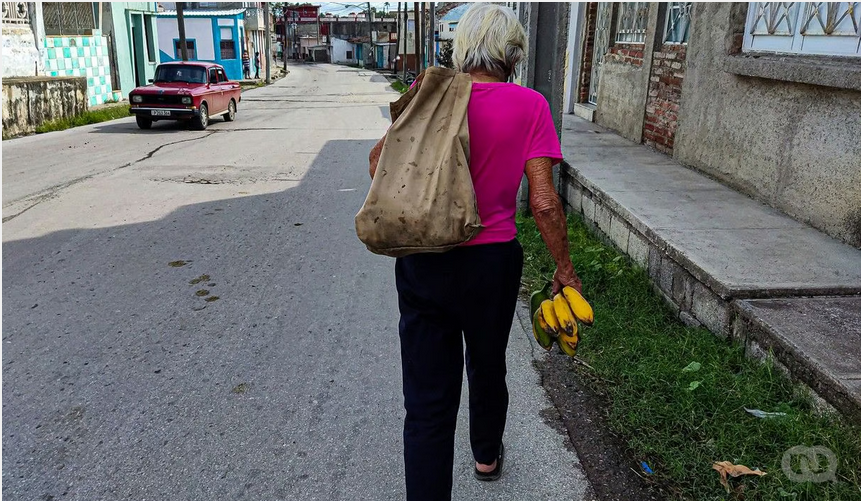In stark contrast to independent study

The Cuban government routinely tries to impress with figures that the general population has no way of knowing if they represent a large or small part of the problem.
By Lorain Morales Pino (El Toque)
HAVANA TIMES – On July 15, 2024, Joaquín Alonso Vazquez, Cuba’s Minister of Economy, addressed a session of the National Assembly’s Economic Affairs Committee. He detailed several measures the Cuban Government has implemented during the last year to assist the most vulnerable population.
Among the actions, Alonso highlighted the delivery of basic necessities to 17,000 vulnerable families. He also mentioned the government’s financing of standardized family rations to 309,037 beneficiaries and 28,095 pensioners, at a cost of 477.1 million pesos (around $1.5 million USD); and the distribution of food bags to 158,396 families.
The official also stated that in the last year 18,448 persons without family support received social assistance at home through the efforts of 11,302 salaried social workers, who each attend an average of 120 households.
“We assisted 3,650 mothers of severely disabled children and subsidized the nursing homes and adult care centers of 5,382 older adults. The subsidy for family care and for the payment of electricity was maintained, and there are efforts to perfect the work of social prevention and attention, what we call social work,” stated the minister.
For his part, prime minister Manuel Marrero Cruz declared that the government budget earmarks over 5.9 billion pesos (around $19.5 million USD) to support assistance to 186,707 families, made up of 324,140 people. The programs Marrero mentioned include totally or partially paying transportation services for 50 patients who require specialized medical attention outside their local area and covering the electric bills of 214 families of patients with chronic illnesses.
Marrero also mentioned helping 1,887 people access the services of the Family Care Progra


